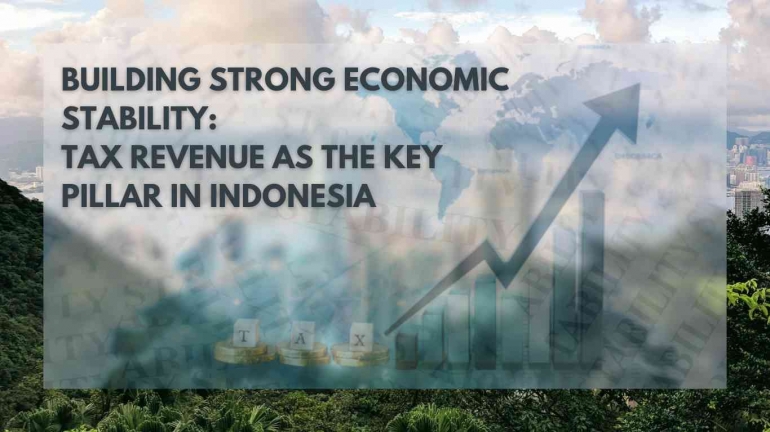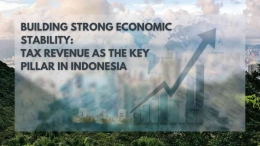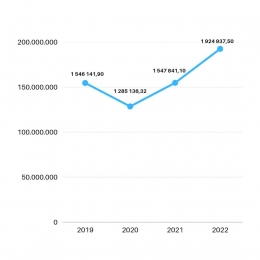(28/06/2023) - Dessylva Maharany Santosa
Tax revenue, as we know, undoubtedly plays a crucial role in maintaining economic stability in Indonesia. Being one of the country's primary sources of income, taxes not only finance various development programs but also provide a solid financial foundation for achieving sustainable growth. With its large population and complex needs, Indonesia relies on tax revenue as a pillar for attaining strong economic stability.
Tax revenue is more than just a means to fill the state treasury; it is a powerful instrument for fiscal policy management and driving inclusive economic growth. When managed wisely, tax revenue can generate widespread benefits, influencing various economic sectors and enhancing the quality of life for the people.
According to Takumah (2014), the economy heavily relies on tax revenues as a source of government spending for development purposes. This aligns with the reason why tax revenue is a primary pillar in building economic stability.
1. Taxes as Infrastructure Financing
Tax revenue provides the necessary resources for the government to implement development programs. From infrastructure development to investments in healthcare and education sectors, taxes help finance initiatives crucial for long-term economic growth. Without sufficient revenue, the state would struggle to meet the needs of the population and create a conducive environment for business sectors.
2. Taxes as Fiscal Policy Regulators
Tax revenue enables the government to regulate effective fiscal policies, including controlling inflation, reducing budget deficits, and mitigating economic risks. By having control over fiscal policies, Indonesia can better face economic challenges and maintain stability.
3. Taxes as a Social Justice Tool
Tax revenue also plays a significant role in reducing social inequality and enhancing economic inclusion. Through appropriate redistribution policies, tax revenue can be utilized to strengthen social safety nets, provide assistance to disadvantaged groups, and expand access to basic services such as education and healthcare. Thus, tax revenue serves as a tool for achieving social justice and reducing economic disparities within society.










